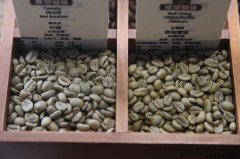The music played by Starbucks coffee shops, like the smell of coffee, must be strictly controlled

Professional coffee knowledge exchange more coffee bean information please follow the coffee workshop (Wechat official account cafe_style)
Starbucks coffee beans >
Chinese people have a long history of being particular about coffee. To be fair, Starbucks coffee doesn't necessarily take advantage of us in terms of taste alone. However, if we look at "in-store music", Starbucks is considered a "tough guy". The songs they play are insightful from the theme to the song selection, with a fresh but not frivolous tone and a deep internal force but not showing off. Not to mention that many restaurant chains here are absolutely unmatched, and even if those highly skilled self-employed coffee shops are included, there are still a few competitors.
The music played in Starbucks is all-inclusive, covering most of the ancient and modern mainstream: grassroots blues, soul, folk, rock, rustic ballads, classic jazz, lyric old songs, world music. Only around the heavy rock, metal, electric, hip-hop, such as "aggressive" more obvious types of music (they have another suitable venue). This kind of music, in the classification of songs broadcast by American radio stations, is roughly classified under the category of "Adult Album Alternative" (adult album alternative repertoire, referred to as AAA): this term is relative to the long-established "Adult Contemporary" (contemporary adult hits), which is the mainstream of the mainstream and often becomes vulgar in the ears of music fans who think highly of themselves. AAA's songs, which fall between "alternative" and "mainstream", have a higher proportion of independent brands, non-mainstream musicians and non-album hits, and have a wider range of music styles.
AAA appeals to music fans who are a little older, have stable taste and care about "temperament". They are not going to pretend to be young to listen to Avril Lavigne and Wujiao, nor can they stand the stereotyped Bryan Adams and Celine Dion in shopping malls. For a medium-level music fan, it is likely that half of the AAA-style radio tracks have never heard of them, but they all have the same temperament, sound comfortable, and seem to have a lot of knowledge.
Starbucks developed "coffee shop music" into a "super business". From the opening of the first chain store, the boss knew very well that he was not only promoting the cup of coffee, but also the cultural consumption meaning of "coffee".
Develop "coffee shop music" into "super big business"
The in-store music of 15000 Starbucks around the world is "directly operated" by the US head office, changing gears regularly and playing them regularly, following this kind of AAA route. The broadcast content is not only the shop assistant and the store manager have no right to buy the beak, but also the distributor has no room to interfere. Take a look at the global Starbucks smoking ban, according to the cloud is not to let the smoke "pollute" the aroma of coffee in the store. Obviously, the music played in the store, like the smell of coffee, is an "environmental ingredient" that must be strictly controlled and must not be "polluted". This is not an easy project: imagine: to design a playlist from the Central Kitchen that is suitable for playing in 44 countries on five continents at the same time, how precise and inclusive music taste do you have to have at the same time?
Starbucks is the first company in history to dare to develop "coffee shop music" into a "super big business". From the opening of the first chain store, the boss knew very well that he wanted to promote not only the cup of coffee, but also "coffee" as a cultural symbol to make little bourgeois "feel good" tangible and intangible products ── you do not need much sharp business acumen, you can also think that "coffee shop music" is a potential theme. The problem is a viable "business model": they have to come up with a revenue model that is different from the traditional music industry.
HearMusic, a record company based in San Francisco, specializes in working with big companies to produce "theme selections" CD. In 1999, Starbucks bought HearMusic for $1 million and released many wonderful albums one after another.
In 1999, Starbucks had "only" 2500 stores in the world, and it was already planning the business as soon as it was firmly established as the "number one coffee retailer in the United States." They paid $1 million for Hear Music, a small San Francisco record company that specializes in working with big companies to produce "themed selections" CD, which focuses on niche markets with special channels. Starbucks has partnered with Hear Music to launch many collections specifically for in-store sales. These songs are broadcast in thousands of stores, and the promotion effect is good. Many people wonder what kind of song is played in the store while drinking coffee. They bought it without saying a word when they heard that it was sold in the store. These collections are all planned products of "Old bottles and New Wine": they have been authorized by the record company of classic recordings to arrange tracks and compile selections according to music style or theme, many of which are old recordings from the 1950's and 1960s, and after redesigning the packaging, it is quite popular with the customers in the metropolis.
Work with heavyweight artists, including Ray Charles,Paul McCartney and Joni Mitchell
With the expansion of Starbucks stores, there are more and more end points for selling these special goods. With the blessing of more than 10,000 stores, the music product line can also play more boldly. In 2004, Hear Music partnered with veteran jazz brand Concord Records to release soul veteran Ray Charles's album "Genius Loves Company", Hear Music's first "original album" to break away from the "old bottle and new wine" model. No one knew at the time that this was Ray Charles's last work. The following year, a guy won eight Grammy Awards, and in the declining record market, the album set a record of 5.5 million copies, of which 1/4 of its turnover came from direct sales at Starbucks stores, far ahead of any traditional record channel.
In 2007, after the resounding victory of "Genius Loves Company", Hear Music's next investment once again shocked the entertainment industry: they persuaded Paul McCartney, a member of the well-known band Beatles, to leave their former club EMI for more than 40 years and sign a license for Hear Music to release a new album. "Memory Almost Full" was nominated for three Grammy Awards and sold more than a million copies, breaking Sir Paul's market record in the past decade. Paul is said to be seriously considering signing a new contract of long-term and deep cooperation with Hear Music.
Hear Music persuaded Paul McCartney to leave his old company, EMI, to release a new album by Hear Music. "Memory Almost Full" was nominated for three Grammy Awards and sold more than a million copies, breaking Sir Paul's market record in the past decade.
Jazz industry's national diva Ella Fitzgerald recorded a series of American Songbook albums in the 1950s, reinterpreting the works of several masters Cole Porter, Duke Ellington and George Gershwin, and has long become the "core canon" of contemporary American culture. This condensed version of this selection of songs is very suitable for entry-level listening.
That year they also signed the distribution licenses of two other heavyweight artists, Baby Boomers' diva James Taylor and Joni Mitchell. Among them, the news of Joni Mitchell's "comeback" is particularly exciting: she has already declared that she is discouraged by the recording circle and has decided to quit music forever and concentrate on going home to paint. Just as her fans' tears dried up, Hear Music persuaded her to publish her first newly created album "Shine" in nine years. Since the release of the album, only music critics around the world have stood up and applauded, and old, middle-aged and young music fans have burst into tears. Why is Aunt Joni willing to change her mind and return to singing? It is said that first of all, the bad situation of the world made her unbearable and unhappy, so she had to write a few new songs to express it, and secondly, Hear Music's unique channel and marketing plan, so that she could not re-"sauce" into the entertainment industry she hated, but could face the issue of "making records" in a more comfortable way. After this battle, Hear Music has been destined to leave a proud legend in the history of contemporary music.
Originally discouraged by the record circle, Joni Mitchell decided to quit music forever and concentrate on going home to paint. Unexpectedly, Hear Music persuaded her to publish her first newly created album "Shine" in nine years. Since the release of the album, only music critics from all over the world have stood up and applauded.
"Artist strict selection" (artist's choice) series is a very popular collection of Hear Music products. They invite heavyweight music to choose songs that affect them, and the inside page is their own analysis of the reasons for each song. From Yo-Yo Ma to Rolling Stones to Bob Dylan, each album of "artists' strict selection" can be the starting point for serious music fans to trace their roots.
In 2006, the Starbucks Zone was launched in cooperation with iTunes, and in 2007, major cities provided on-site download services.
How to introduce diversified trading methods in the coffee shop, so that customers are willing to pay for more things that may not have something to do with coffee? Starbucks is not without a stumble: in 2004, it launched a "Music Kiosk" service in 45 stores in the United States, allowing customers to listen to and burn music CD in the store. Unfortunately, the MP3 Walkman has already replaced CD as the main interface for most customers to listen to music. There was no interest in the "music station", and it stopped quietly two years later. However, they learned a lesson: first, they launched the Starbucks Zone in cooperation with Apple's iTunes online music store in 2006, and in the summer of 2007, they launched a new download service in several indicator metropolitan areas in the United States: if customers listen to their favorite songs in the store, they only need to take out a notebook computer, iPod Touch or iPhone, and they can connect to the iTunes online store through the store's wireless network and download the songs you hear directly. It also includes ten tracks that have just been broadcast. That's right. It's cool to play like this.
In the era when the old structure of the record industry is teetering, Starbucks boldly grasped several key points: "coffee shop is the physical channel", "developing its own original products", "accurately mastering mainstream customer taste", "ploughing focus market", and "correctly selecting partners of different industries". It is clear that the money they spend according to these principles can hit the nail on the head more than most competitive brands in the music industry. Of course, Starbucks has a lot of capital to "play big games", but look at these things they "did right". If you think about the "cultural and creative industries", Starbucks can inspire some inspiration.
Brief introduction of several grinding degrees of Starbucks coffee beans
Important Notice :
前街咖啡 FrontStreet Coffee has moved to new addredd:
FrontStreet Coffee Address: 315,Donghua East Road,GuangZhou
Tel:020 38364473
- Prev

Starbucks Coffee and Fairness regulations for growers-how are Starbucks coffee beans purchased?
Professional coffee knowledge exchange more coffee bean information please follow the coffee workshop (Wechat official account cafe_style) Starbucks coffee beans Starbucks ethical procurement is based on coffee and fair norms for growers. In 2001, Starbucks worked with Conversation International,CI, a non-profit environmental organization, to develop guidelines for coffee procurement
- Next

Starbucks Coffee Story and Brewing Flavor characteristics of Yunnan Coffee Bean producing area
Professional coffee knowledge exchange more coffee bean information please follow the coffee workshop (Wechat official account cafe_style) Starbucks coffee bean coffee is not only a drink for modern people, but also a kind of aesthetics of life, so many companies begin to lock in the high-end boutique coffee market! Like the coffee chain Starbucks, it launched.
Related
- Detailed explanation of Jadeite planting Land in Panamanian Jadeite Manor introduction to the grading system of Jadeite competitive bidding, Red bid, Green bid and Rose Summer
- Story of Coffee planting in Brenka region of Costa Rica Stonehenge Manor anaerobic heavy honey treatment of flavor mouth
- What's on the barrel of Blue Mountain Coffee beans?
- Can American coffee also pull flowers? How to use hot American style to pull out a good-looking pattern?
- Can you make a cold extract with coffee beans? What is the right proportion for cold-extracted coffee formula?
- Indonesian PWN Gold Mandrine Coffee Origin Features Flavor How to Chong? Mandolin coffee is American.
- A brief introduction to the flavor characteristics of Brazilian yellow bourbon coffee beans
- What is the effect of different water quality on the flavor of cold-extracted coffee? What kind of water is best for brewing coffee?
- Why do you think of Rose Summer whenever you mention Panamanian coffee?
- Introduction to the characteristics of authentic blue mountain coffee bean producing areas? What is the CIB Coffee Authority in Jamaica?

